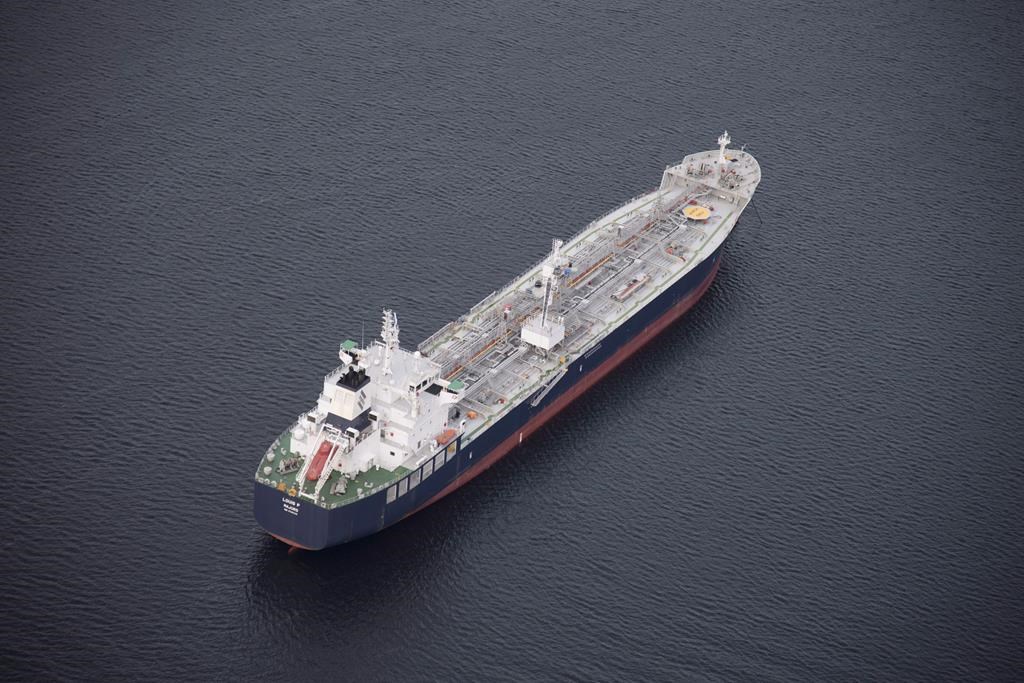A new Angus Reid Institute study suggests Canadians have a much greater concern over marine shipping when petroleum is involved.

The survey of over 2,200 people found 94 per cent of Canadians believe marine shipping is either “very safe” or “generally safe.”
But when asked about shipping petroleum products in Canadian waters, only 61 per cent of respondents said they are more confident about the safety of the procedure than they are worried.
Research associate Ian Holliday also notes that more than half of those surveyed mentioned the potential for an oil spill as a major risk associated with the shipping industry.
But Holliday tells Alberta Morning News that concern shows people may be overestimating how many major oil spills have taken place in Canadian waters, where at least 700 tonnes of oil have spilled.
“Most Canadians guess that over the last 10 years, there have been at least three such spills,” Holliday says.

Get breaking National news
“In fact, there have been zero spills of that size.”
According to the study, the support for marine shipping petroleum also varies depending on geographic location.
In Alberta and Atlantic Canada, more than 60 per cent of respondents would support an increase in oil tanker traffic around B.C.’s South Coast.
But most British Columbians and Quebecers oppose more petroleum-carrying vessels in the same area.
The survey also found 75 per cent of Canadians are confident in the safety rules and regulations covering marine shipping, but a majority still feels the government needs to focus more on safety oversight and enforcement.
The Angus Reid Institute conducted an online survey from Oct. 19-29, 2018, among a representative randomized sample of 2,250 Canadian adults who are members of Angus Reid Forum. The sample plan included large over-samples in British Columbia and Atlantic Canada, which were then weighted back to provide a national snapshot. For comparison purposes only, a probability sample of this size with this sample plan would carry a margin of error of +/- 2.5 percentage points, 19 times out of 20.






Comments
Want to discuss? Please read our Commenting Policy first.